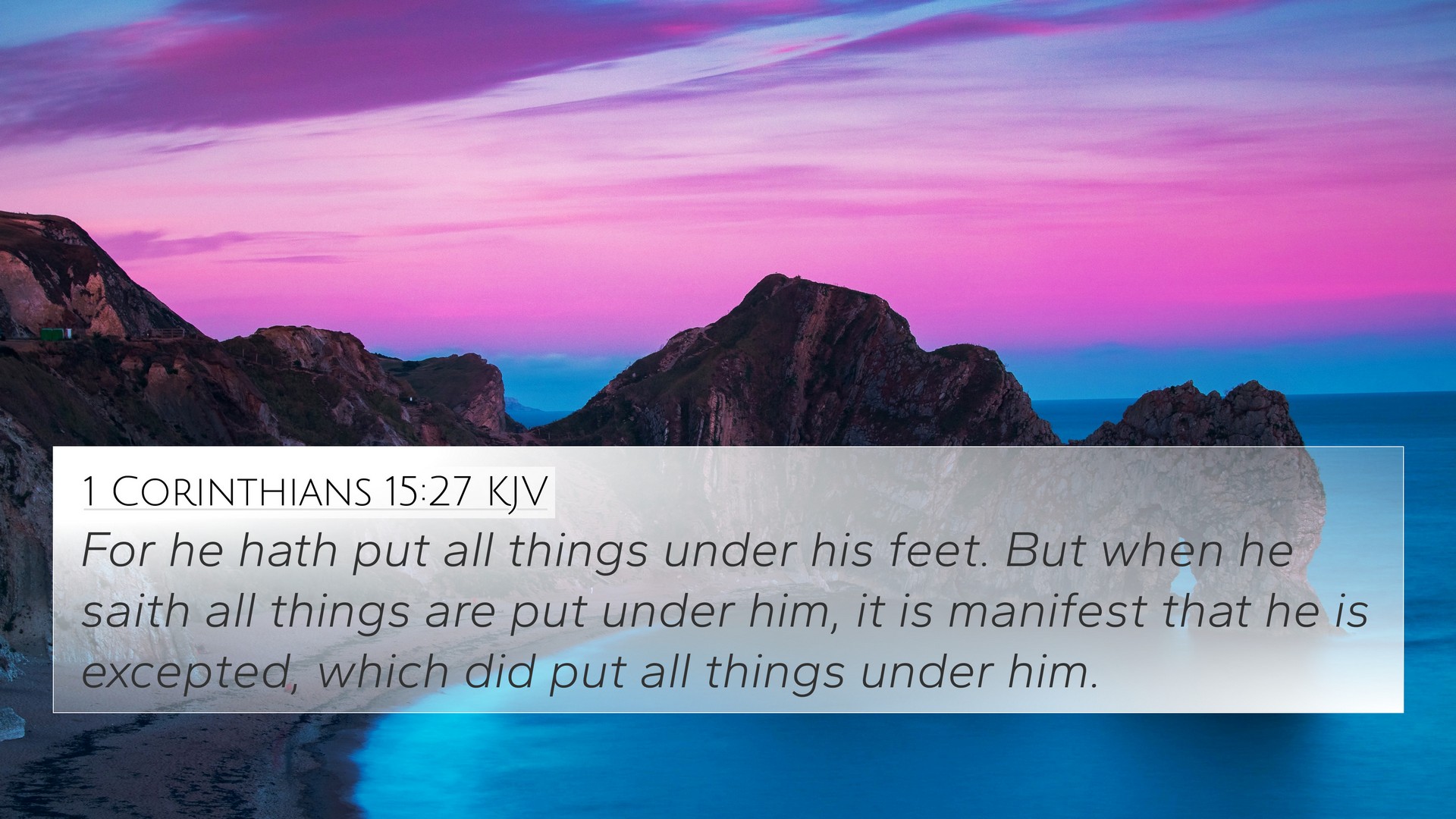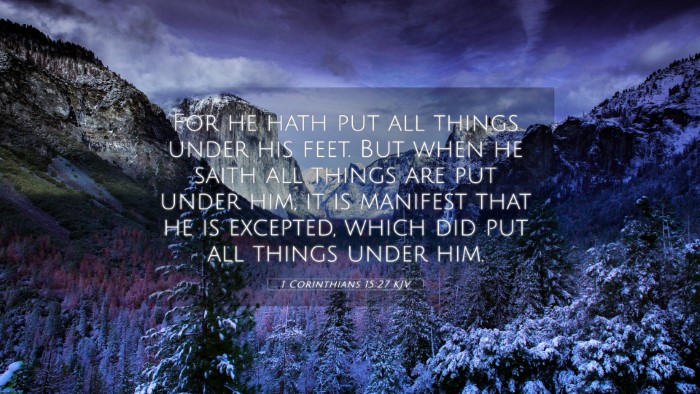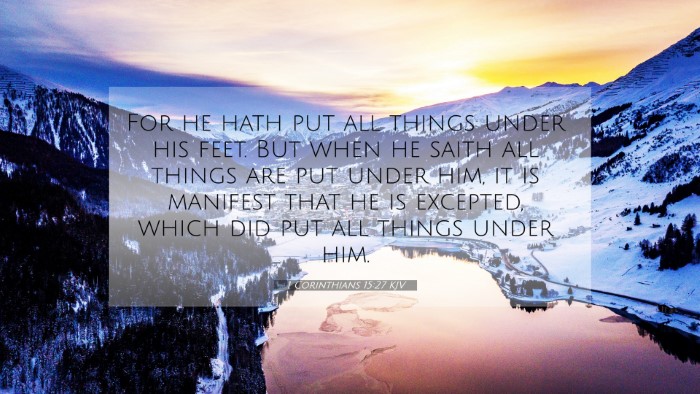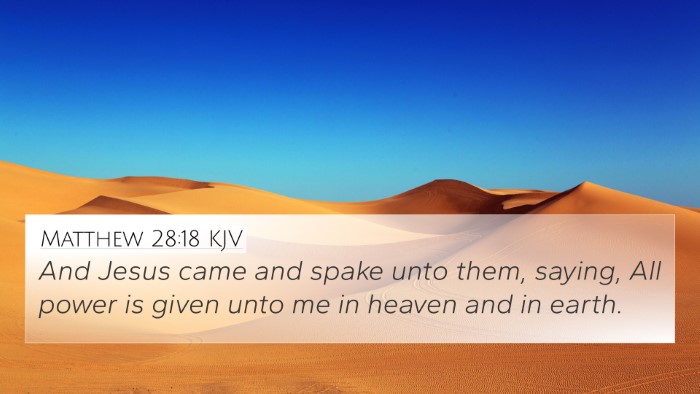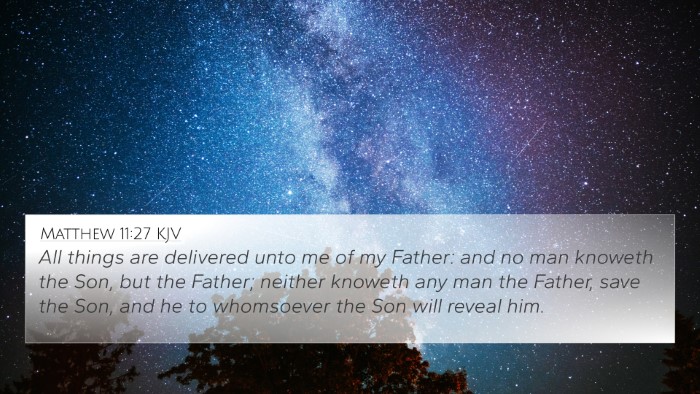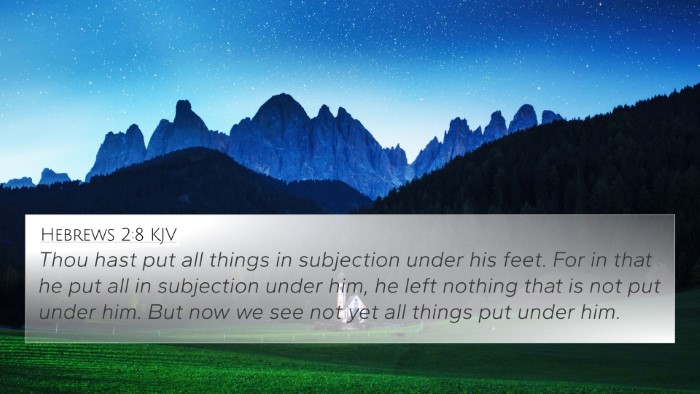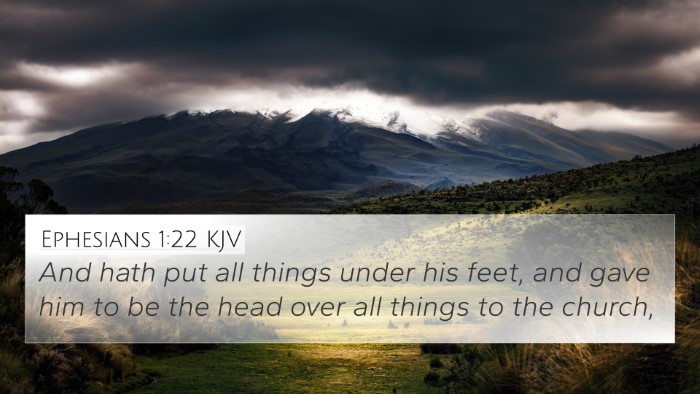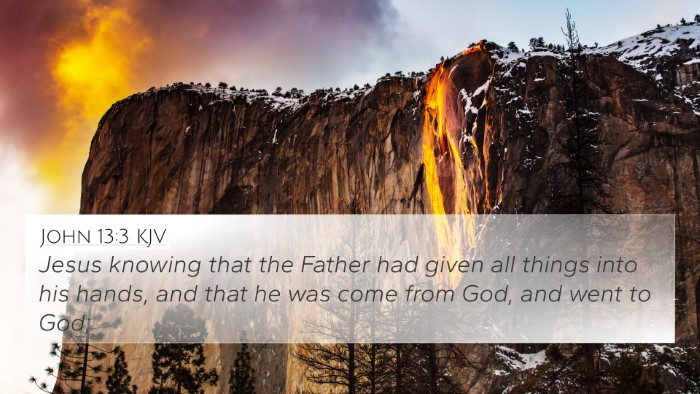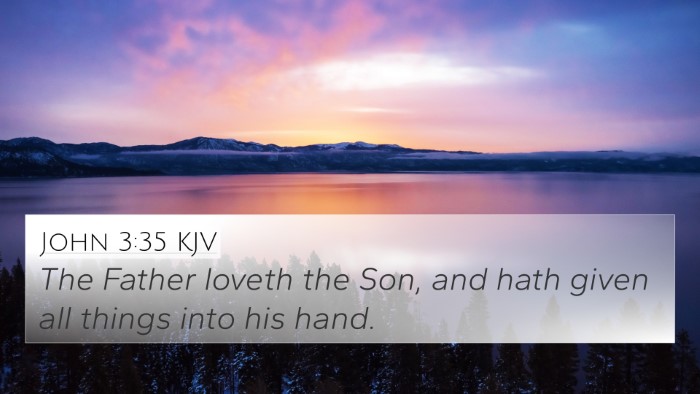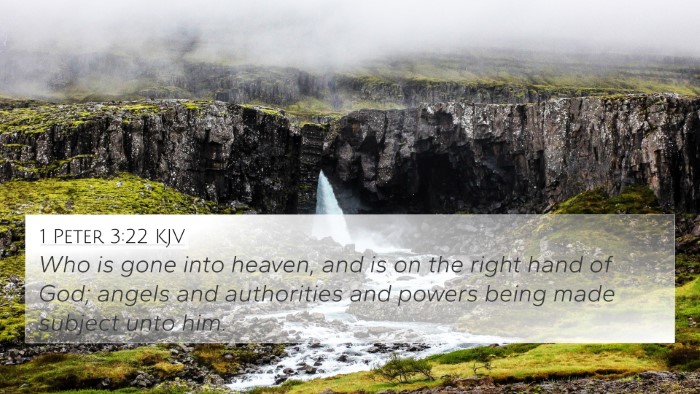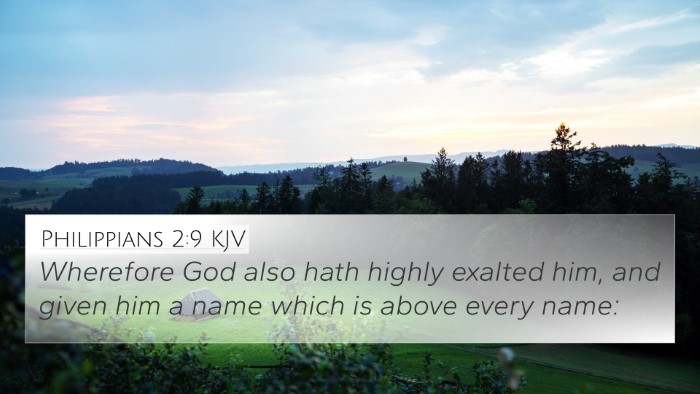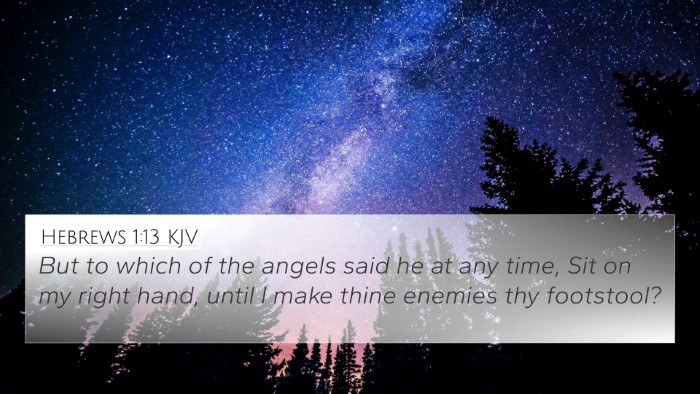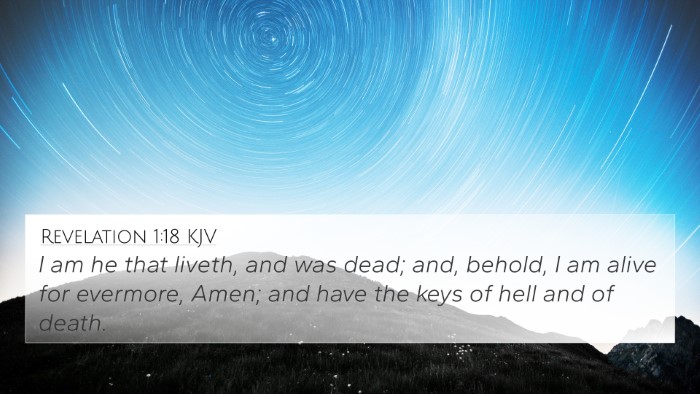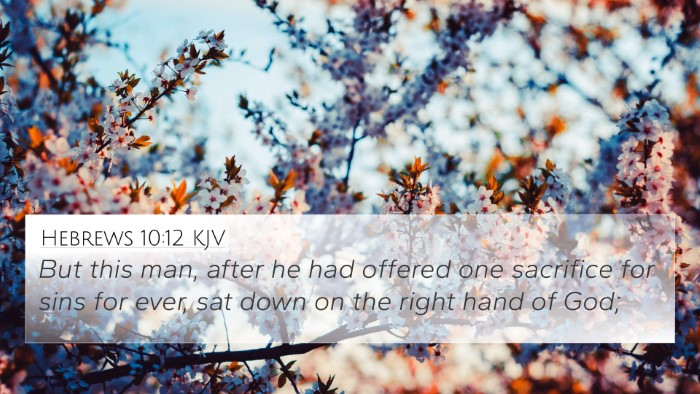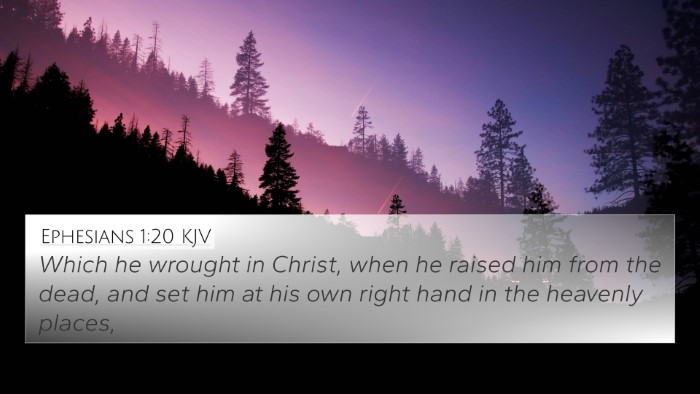Understanding 1 Corinthians 15:27
In 1 Corinthians 15:27, the Apostle Paul emphasizes the sovereignty of Christ in relation to everything, stating that God has put all things under His feet, except for God Himself. This verse is pivotal in understanding the nature of Christ's authority and His role in the divine hierarchy.
Here, we summarize insights from renowned public domain commentaries to delve deeper into its meaning.
Commentary Insights
-
Matthew Henry:
Matthew Henry points out that the phrase "all things" encompasses every realm of existence and power. Christ’s victory over death signifies His present authority. The exception noted for God indicates that while Christ reigns supreme, He remains subject to the Father’s will. Henry emphasizes that this hierarchy reveals not a division in the essence of the Godhead, but rather a functional order within the Godhead to illustrate purpose and divine authority.
-
Albert Barnes:
Albert Barnes elucidates that in this verse, Paul references Psalm 8:6, where God grants humanity dominion over the works of His hands. Barnes clarifies that Jesus fulfills this promise, reclaiming authority over all creation as the firstborn of the resurrected. He stresses the significance of resurrection as instrumental in establishing Christ's lordship, as well as the unity of His reign with the Father.
-
Adam Clarke:
Adam Clarke elucidates that Paul’s declaration accompanies a reminder of Christ's ultimate authority in the resurrection, invoking the understanding that nothing is outside His scope of influence. Clarke underscores the relationship between Christ's subjugation of all things and the culmination of God's plan for salvation. He argues that understanding this verse helps believers appreciate their position as heirs through Christ.
Bible Cross References
This verse connects with several other biblical texts that help to clarify its significance:
- Psalm 8:6: "You made him ruler over the works of your hands; you put everything under his feet."
- Matthew 28:18: "All authority in heaven and on earth has been given to me."
- Ephesians 1:22: "And God placed all things under his feet and appointed him to be head over everything for the church."
- Philippians 2:9-11: "Therefore God exalted him to the highest place and gave him the name that is above every name."
- Colossians 1:16: "For in him all things were created: things in heaven and on earth, visible and invisible."
- Hebrews 2:8: "In putting everything under them, God left nothing that is not subject to them."
- Romans 14:9: "For this very reason, Christ died and returned to life so that he might be the Lord of both the dead and the living."
Thematic Connections
1 Corinthians 15:27 serves as a crucial thematic anchor that interlinks various scriptures, illustrating several overarching concepts:
-
Christ’s Authority:
The dominant theme is the exaltation of Christ and His supreme authority, evident across the New Testament.
-
Resurrection:
This verse solidifies the concept of resurrection as the foundation for Christian hope and Christ’s kingship.
-
Divine Order:
It highlights the divine order within the Trinity, showing how roles and functions coexist in a harmonious relationship.
Cross-Referencing and Comparative Analysis
Engaging in cross-referencing Biblical texts is invaluable for enhanced understanding. For instance, using a bible concordance allows for deeper exploration of the meanings of terms like "authority" and "subjection" throughout the scriptures. By comparing this verse with Philippians 2:9-11, one can observe clear thematic parallels regarding Christ's exaltation.
Tools for Bible cross-referencing, like a Bible cross-reference guide, can assist in identifying connections between Old and New Testament verses, enriching one’s insight into the scriptural narrative. Methods in cross-referencing Bible study allow for more effective interpretation of passages by highlighting their interconnections.
Conclusion
The meaning and interpretation of 1 Corinthians 15:27 can lead to a robust understanding of God's plan through Christ. By examining this verse through the lens of public domain commentaries, the connections between various scriptures become clear.
Engaging with themes across different books of the Bible offers profound insights into God's ultimate authority and the nature of Christ's redemptive work, making it essential for both personal and corporate study.
